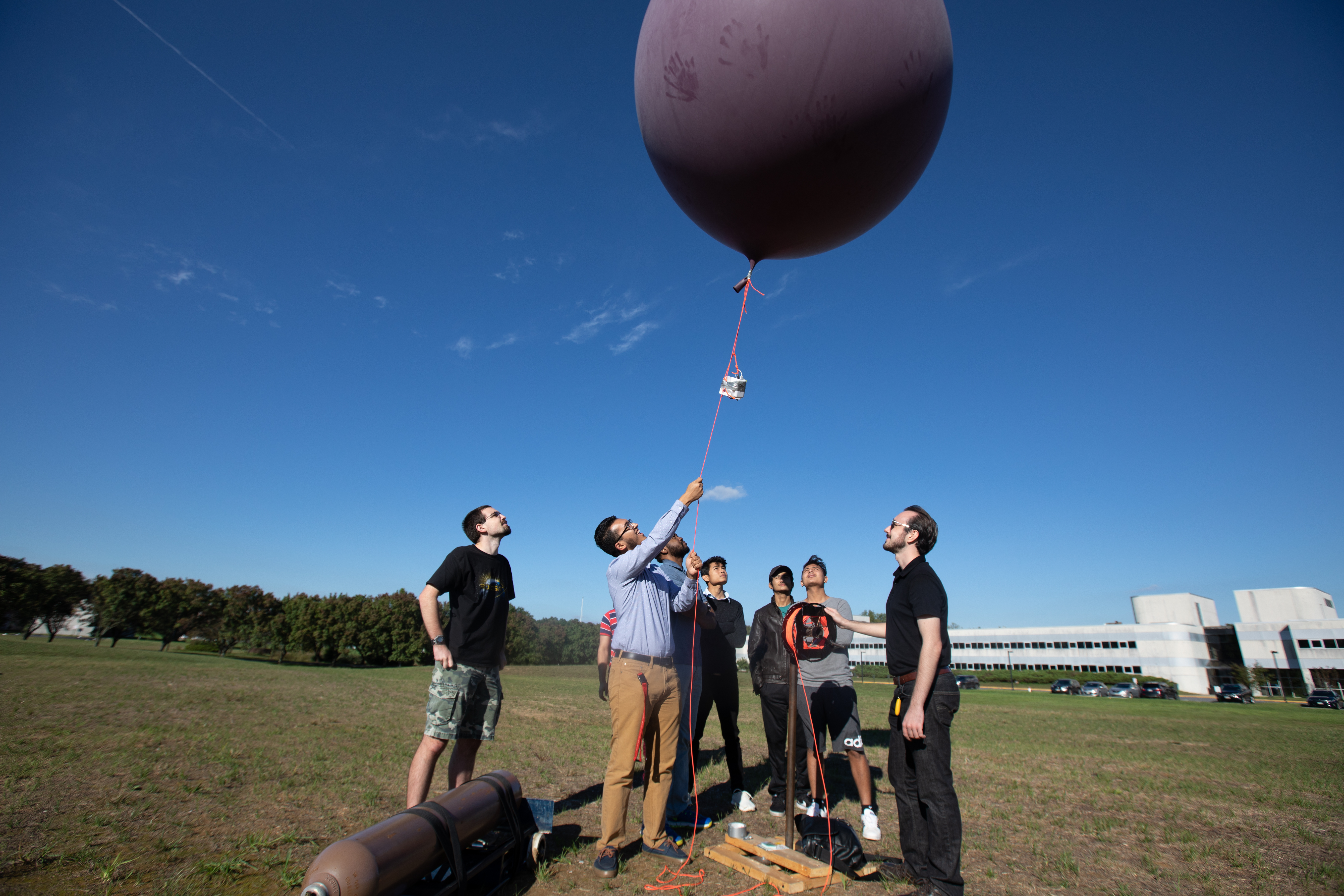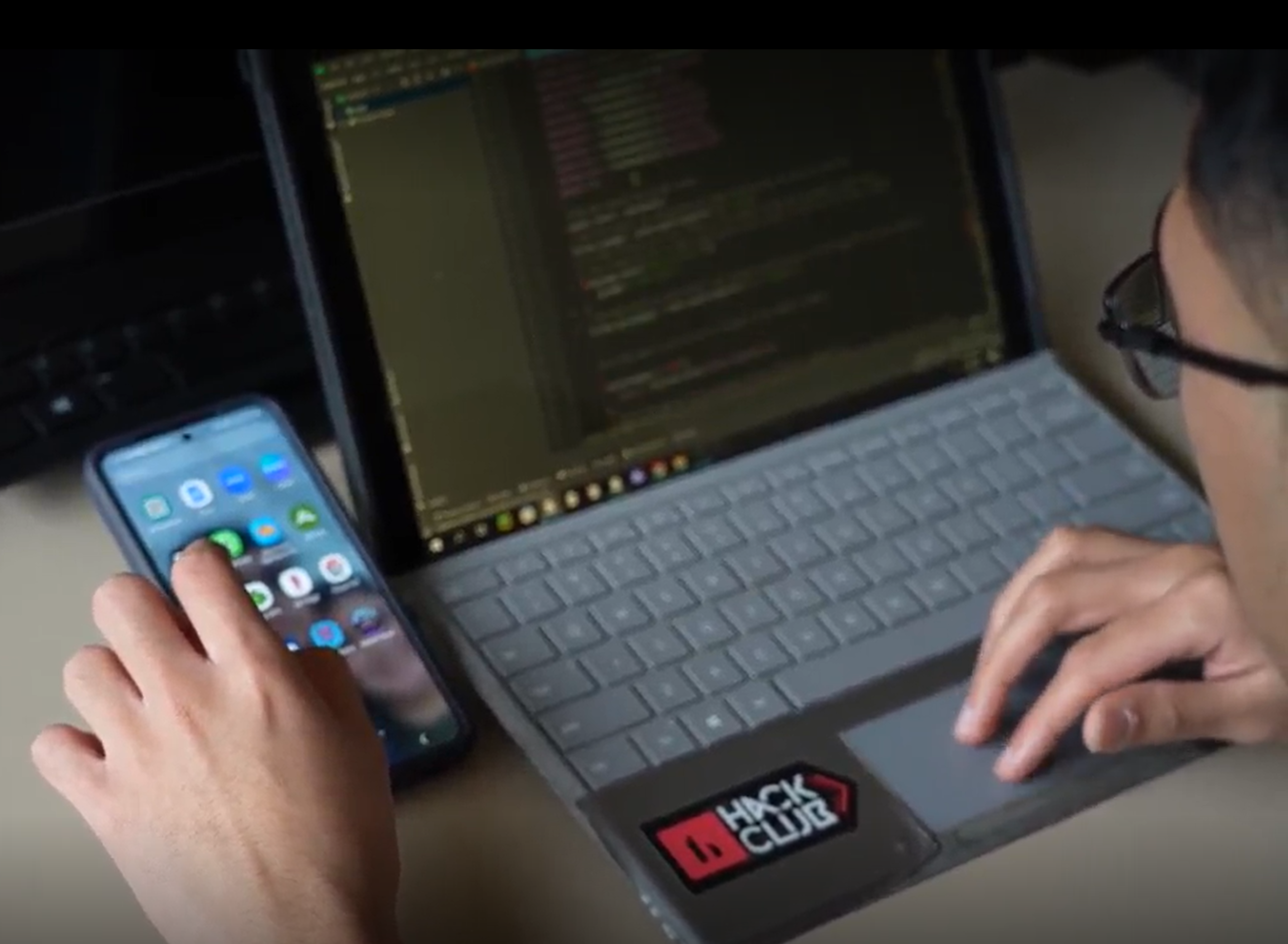Come see what we're building...
Our students are some of the most innovative thought leaders in the STEM arena. At Capitol Tech, we provide the means to success through education, research, and industry partnerships to support student development.
Our students graduate with hands-on experience in creating, building, and engineering real machines, conduct research using industry-grade equipment, and step into their field with job-relevant skills that put them ahead of their peers.
See what our students have already accomplished, and what projects you can help lead!
Points of Contact:
Satellite Ground Station Terminal Project
As a part of our Astronautical Engineering and Space program, the Satellite Ground Station Terminal Project was developed as a low-cost software-integrated mechanism to recognize and track satellites in Low Earth Orbit (LEO), collect spacecraft telemetry, and perform spacecraft ranging to calculate a satellite’s orbital path. The new stations also allow signal-to-noise ratio calculations, radio frequency (RF) telemetry spectrum analysis, telemetry collection, and development of a hands-on understanding of spacecraft ground station operations and automation. The overall goal of the project is to increase spacecraft ground coverage for CubeSat missions.

BalloonSat Payload Project
Our Aviation and Astronautical Engineering department works with students to develop high altitude balloon flights to simulate the conditions that a space payload will experience during a rocket launch. Capitol Tech collaborates with the Maryland Space Grant Consortium for these balloon tests, which prepare students for future projects with NASA's CubeSat Launch Initiative (CSLI). To date, six payloads have been successfully launched!

Mobile Application Project
Chargers Link is a mobile application developed by one of our talented students. Through use of the Flutter UI toolkit and the programming language Dart, he has constructed an app for Android & iOS devices that aims to improve communications and alerts for students by providing a one-click access to our university’s online resources.
Watch Nelson talk about his experience and app project at Capitol!Facial Recognition Security Module
Using three distinct programs within Python and a Raspberry Pi, Computer Science students developed a security module with facial recognition software that works by sending a timestamped alert notification to a registered user when a face or motion is detected around or near the connected device. This very practical design can be used as an added security feature for computers and cell phones to help prevent unauthorized access, especially for those within high security clearance environments.
Log Chip PCB Board Training Device
In an effort to make learning more accessible and hands-on through the availability of comprehensive training instruments, Astronautical and Space Engineering students developed a Log Chip PCB Board with an interactive circuit training platform and user manual. This device helps students learn the fundamentals of circuitry work including soldering, connectivity, voltage testing, and components identification to expand on theories taught in the classroom.
Solar Powered Sun Tracking System
Electrical Engineering students developed a solar powered sun-tracking system designed to move with the rotation of the sun to optimize the best absorption of light to better fuel solar panels. The circuitry of the device involves a complex system of moving components, a motion sensor, sun panels, relay module, charge controller, DC voltage regulators, grids, connectors, and wiring. This device has a wide range of potential applications in agriculture, home improvement, energy research, and beyond.
Temperature Display Thermostat
Computer Science students developed a new take on a temperature display thermostat device that uses remote control technology. They created the device by integrating multiple components to transfer codes between a computer and a remote control, and they programmed the thermostat using Arduino C and Bash coding. The device’s customizability, practicality, and optimized display panel make it an appealing potential product for future home and commercial uses.
ALPHA Observatory Research
Astronautical and Space Engineering students use current research and collaborate with the Minor Planet Center (MPC) to plan observation targets within our observatory computer system, detailing target position, exposure time, focus parameters, observation pause conditions and observation ending times. Once observations begin, students have the ability to remote into ALPHA to monitor its status and retrieve data that can be sent to the MPC. The ALPHA Observatory provides ASE program students with a unique opportunity to contribute to scientific research and improve the overall understanding of near Earth objects (NEOs).


